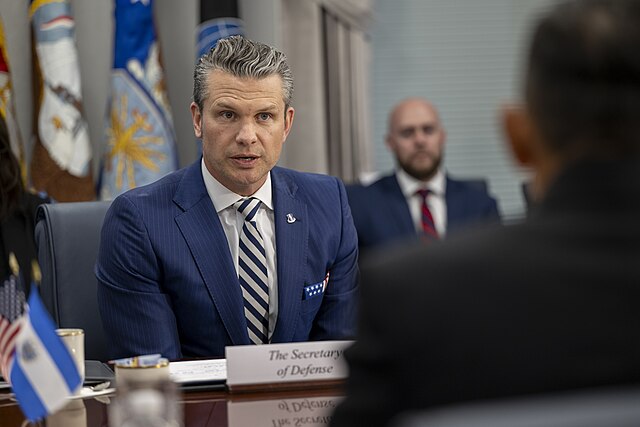NOTE: VIDEO at the end of the article.
Kilmar Abrego Garcia, whose controversial detention in El Salvador once drew fervent support from Democratic lawmakers and media outlets, has now been returned to the United States—this time to face serious federal charges that shift the narrative dramatically.
According to a newly unsealed indictment, Abrego Garcia is charged with conspiracy to transport illegal aliens, including individuals allegedly linked to the notorious transnational gang MS-13. Federal prosecutors claim he played a central role in organizing smuggling operations that brought undocumented migrants, some with violent criminal ties, into the country.
These developments mark a significant turn in the public perception of Abrego Garcia. Once held up as a symbol of alleged immigration policy overreach under former President Donald Trump, his legal situation now paints a more complex—and troubling—picture. At the height of his previous legal troubles, multiple Democratic lawmakers, civil rights groups, and liberal media outlets publicly defended Abrego Garcia, framing his detention as an example of human rights abuse and xenophobic enforcement tactics.
However, with the emergence of new criminal charges, conservative figures are calling out what they see as premature and politically motivated support. They argue that the case illustrates the risks of politicizing immigration enforcement and prematurely elevating individuals without full knowledge of their background.
Still, despite the serious allegations now facing Abrego Garcia, some Democratic leaders remain vocal in their support. On CNN’s Anderson Cooper 360, Senator Chris Van Hollen (D-MD) stirred controversy by stating that former President Trump owed Abrego Garcia an apology, referencing the “trauma and mistreatment” he faced while in U.S. custody. These comments were met with swift backlash from conservative commentators and GOP lawmakers, who accused Van Hollen of ignoring the gravity of the charges for political gain.
The case has reignited deep partisan divisions over immigration, law enforcement, and media accountability. Conservatives argue that this case exemplifies the dangers of framing all enforcement actions as unjust or racially motivated, while some progressives continue to stress the importance of due process and humane treatment, even for those accused of serious crimes.
As legal proceedings begin, Abrego Garcia’s case is likely to remain a lightning rod for both parties. For the right, it is a cautionary tale about misplaced advocacy and national security risks. For the left, it challenges their messaging on immigration reform and raises questions about how to navigate high-profile cases when new facts emerge.
Ultimately, Abrego Garcia’s indictment underscores how volatile the intersection of politics, immigration, and criminal justice remains in the U.S.—especially in an election year.
PLAY:

James Jenkins is a celebrated Pulitzer Prize-winning author whose work has reshaped the way readers think about social justice and human rights in America. Raised in Atlanta, Georgia, James grew up in a community that instilled in him both resilience and a strong sense of responsibility toward others. After studying political science and creative writing at Howard University, he worked as a journalist covering civil rights issues before dedicating himself fully to fiction. His novels are known for their sharp, empathetic portraits of marginalized communities and for weaving personal stories with broader political realities. Jenkins’s breakout novel, Shadows of Freedom, won national acclaim for its unflinching look at systemic inequality, while his more recent works explore themes of identity, resilience, and the fight for dignity in the face of oppression. Beyond his novels, James is an active public speaker, lecturing at universities and participating in nonprofit initiatives that support literacy and community empowerment. He believes that storytelling is a way to preserve history and inspire change. When not writing, James enjoys jazz music, mentoring young writers, and traveling with his family to explore cultures and stories around the world.









